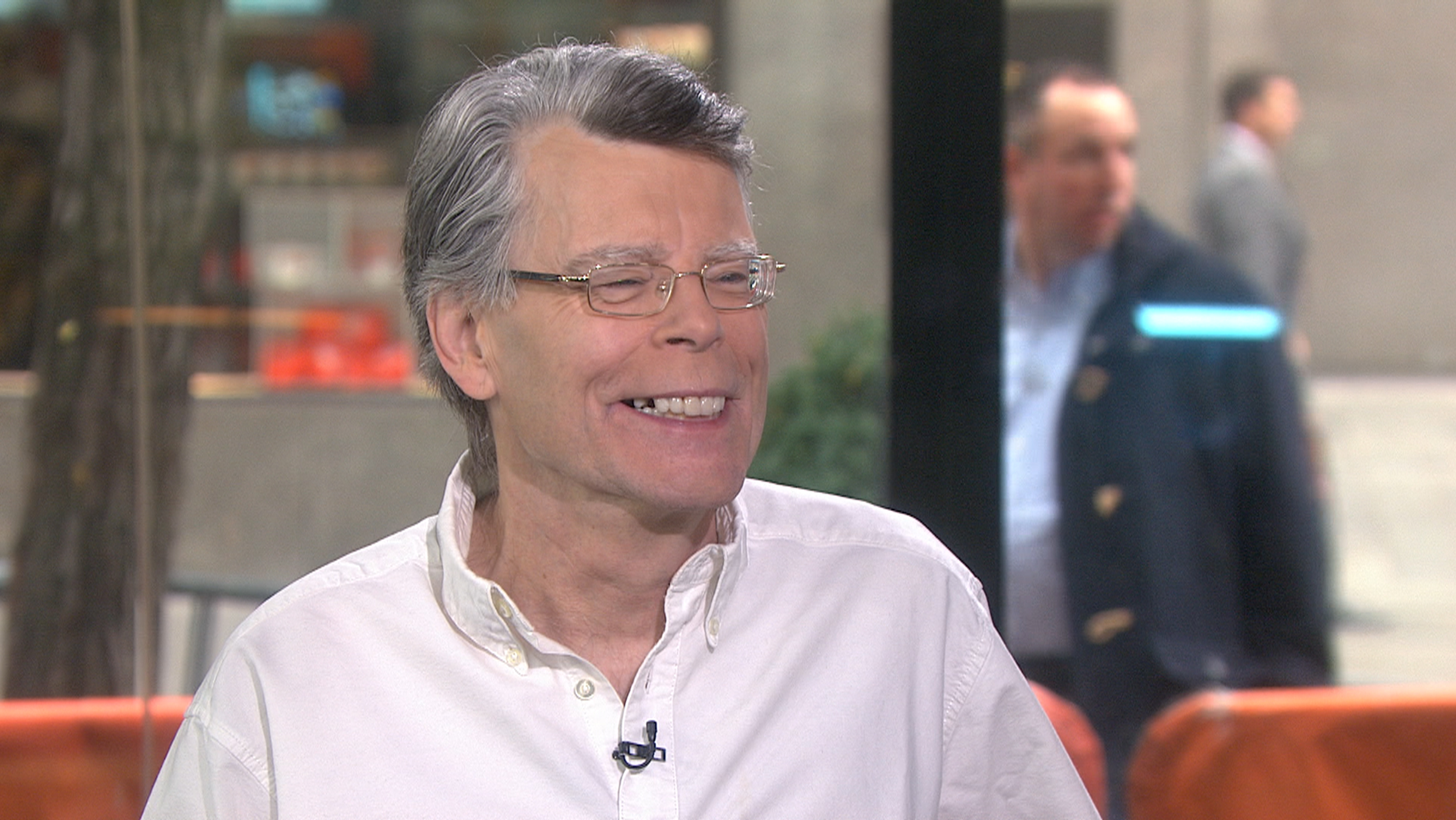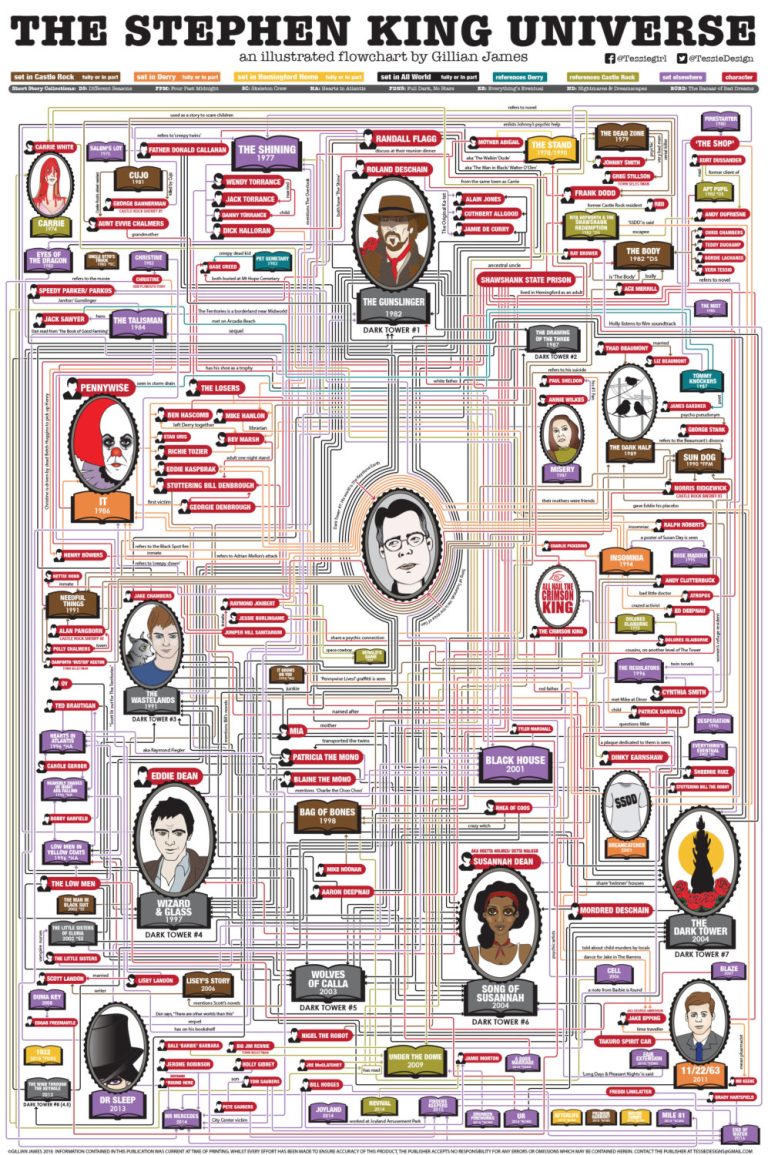What Are Stephen King’s Beliefs?
If you’re a fan of Stephen King’s work, you may find yourself wondering, “What are Stephen King’s beliefs?” It’s a natural curiosity to have about someone whose mind has created some of the most chilling and captivating stories of our time. Well, fear not, my friend, because today we’re going to dive into the depths of Stephen King’s beliefs and explore the inner workings of this literary genius.
Stephen King, known for his masterful storytelling and ability to tap into our deepest fears, has a unique perspective on life and the world around him. He’s often been described as a writer who delves into the dark corners of the human psyche, but what lies beneath the surface? What are the beliefs that drive his imagination and shape his narratives? In this article, we’ll uncover some of the key themes and principles that Stephen King holds dear, shedding light on the mind behind the macabre. So, grab your flashlight and prepare to venture into the realm of Stephen King’s beliefs!

What are Stephen King’s Beliefs?
Stephen King, the renowned author of horror and suspense novels, has captivated readers for decades with his masterful storytelling and chilling narratives. While King is best known for his ability to terrify and entertain, many are curious about the beliefs and philosophies that underpin his work. In this article, we delve into the depths of Stephen King’s beliefs, exploring his thoughts on various topics, including religion, politics, and the human condition.
King’s Views on Religion
Stephen King’s perspective on religion is a complex and nuanced one. While he has never explicitly identified with a specific religious denomination, he has often explored religious themes in his writing. King’s novels often feature characters grappling with matters of faith, spirituality, and the existence of higher powers. He has expressed a fascination with the supernatural and the unexplained, which may stem from his own spiritual curiosity.
In his book “The Stand,” King delves into themes of good versus evil, drawing parallels to biblical narratives. He explores the concept of a higher power and the influence of spirituality on human behavior. While King does not adhere to traditional religious beliefs, his writing demonstrates a deep understanding of the power of faith and the impact it can have on individuals and society as a whole.
Religion in King’s Novels: A Reflection of Society
In many of Stephen King’s novels, religion serves as a reflection of societal dynamics rather than a personal belief system. He often uses religious institutions and figures as symbols or metaphors to comment on the human condition. King’s exploration of religious themes is not limited to promoting or criticizing specific faiths but rather an examination of the role of belief systems in shaping individual and collective behavior.
For example, in “Carrie,” King explores the destructive consequences of religious fanaticism and the abuse of power within religious institutions. The character of Margaret White, Carrie’s mother, embodies the dangers of religious extremism and the potential harm it can inflict on vulnerable individuals. Through this portrayal, King raises questions about the relationship between faith, control, and mental well-being.
In his novel “Revival,” King delves into the darker side of religious fervor and the dangerous consequences of blind faith. The story follows the life of a young minister who becomes obsessed with the idea of harnessing supernatural powers. King uses this narrative to explore the inherent dangers of religious zealotry and the potential for manipulation within religious communities.
Throughout his body of work, Stephen King offers a thought-provoking examination of religion, challenging readers to critically reflect on its impact on society and human behavior.
King’s Political Leanings
Stephen King is known for his outspokenness on political issues, particularly through his active presence on social media platforms. While he has never aligned himself explicitly with a particular political party, his views tend to lean towards the progressive end of the spectrum. He has been a vocal critic of conservative policies and politicians, often using his platform to advocate for social justice and equality.
King’s novels also reflect his political leanings, with many of his stories addressing social issues and exploring the consequences of political decisions. In “The Dead Zone,” for instance, King delves into the dangers of charismatic and authoritarian leadership, highlighting the potential threats posed by individuals who abuse their power.
Political Commentary in King’s Novels
In addition to his public statements, Stephen King’s novels provide a platform for political commentary. He uses his storytelling prowess to shed light on societal injustices and challenge existing power structures. Through his characters and plotlines, King addresses issues such as racial inequality, corruption, and the erosion of civil liberties.
In “The Green Mile,” King tackles themes of racism and discrimination, set against the backdrop of a death row prison. The story emphasizes the importance of empathy and compassion in the face of systemic injustice, advocating for the need to challenge societal norms and fight for equality.
Similarly, in “Under the Dome,” King explores the consequences of unchecked power and the implications of a society divided by political ideologies. The novel serves as a cautionary tale, urging readers to question authority and remain vigilant in the face of political manipulation.
By incorporating political themes into his writing, Stephen King encourages readers to engage critically with the world around them and consider the impact of political decisions on individuals and communities.
The Human Condition in King’s Work
One of the defining aspects of Stephen King’s writing is his profound understanding of the human condition. He has a keen ability to capture the intricacies of human emotions, fears, and desires, creating characters that resonate with readers on a deep level. Through his exploration of the human psyche, King invites readers to confront their own fears and confront the darker aspects of humanity.
In his novel “It,” King delves into the concept of fear and its effect on individuals and communities. The story follows a group of friends who confront a malevolent entity that preys on their deepest fears. Through this narrative, King explores the power of fear and how it can both unite and divide people. He emphasizes the importance of facing one’s fears and finding strength in unity.
The Complexity of Human Nature
Stephen King’s novels often challenge the notion of black-and-white morality, presenting characters with complex and morally ambiguous traits. He recognizes that people are multifaceted, capable of both great acts of kindness and unimaginable cruelty. King’s exploration of the human condition is a testament to his understanding of the complexities of human nature.
In “Misery,” King delves into the dark side of obsession and the lengths to which individuals can go when driven by their desires. The novel explores themes of isolation, addiction, and the destructive consequences of unchecked ambition. Through his characters, King highlights the fragility of the human psyche and the potential for darkness that exists within us all.
Through his exploration of the human condition, Stephen King invites readers to confront their own vulnerabilities and question the boundaries of their own morality. His writing serves as a mirror, reflecting the intricacies of human nature and challenging readers to delve deeper into their own understanding of themselves and the world around them.
Stephen King’s Legacy
Stephen King’s beliefs and perspectives have shaped not only his writing but also his impact on popular culture. His ability to captivate readers with his gripping narratives and relatable characters has solidified his status as one of the most influential authors of our time. While his beliefs may not always align with conventional norms, King’s willingness to explore the depths of the human experience has resonated with millions of readers worldwide.
In conclusion, Stephen King’s beliefs encompass a wide range of topics, from religion and politics to the intricacies of the human condition. Through his writing, he challenges readers to confront their own beliefs and engage critically with the world around them. King’s legacy extends far beyond his novels, as he continues to inspire and provoke thought through his candid public statements and unwavering commitment to storytelling. Whether you agree with his perspectives or not, there is no denying that Stephen King has left an indelible mark on both the literary world and the cultural landscape.
Key Takeaways: What are Stephen King’s beliefs?
- Stephen King is known for his belief in the power of storytelling to connect with readers on an emotional level.
- He believes in the importance of facing and overcoming our fears as a way to grow and develop as individuals.
- King is a strong advocate for freedom of expression and believes that writers should have the right to explore any topic or theme in their work.
- He believes in the existence of supernatural forces and often incorporates elements of the supernatural in his stories.
- King is also a firm believer in the idea that everyone has a story to tell and that writing can be a cathartic and healing process.
Frequently Asked Questions
Here are some commonly asked questions about Stephen King’s beliefs:
1. What are Stephen King’s thoughts on religion?
Stephen King’s beliefs about religion are complex and have evolved over time. While he was raised in a Methodist household and attended church as a child, he has described himself as an agnostic in his adult life. King has often explored religious themes in his writing, including the battle between good and evil, but he does not adhere to any specific religious doctrine. Instead, he tends to focus on the power of human morality and the potential for both darkness and redemption within all individuals.
King has been critical of organized religion at times, questioning its ability to provide answers to life’s big questions. However, he also recognizes the comfort and community that religion can bring to people. Overall, his views on religion can be characterized as open-minded and nuanced, reflecting his belief in the importance of personal exploration and individual interpretation.
2. Does Stephen King believe in the supernatural?
Stephen King has often been associated with the supernatural due to his extensive body of work in the horror genre. While he is known for his imaginative and chilling tales of ghosts, monsters, and otherworldly phenomena, it is important to note that King himself does not claim to believe in the literal existence of supernatural beings or events.
Instead, King has explained that his fascination with the supernatural stems from its ability to tap into universal fears and anxieties. He sees the supernatural as a metaphor for the darker aspects of human nature and the unknown forces that shape our lives. For King, the power of his storytelling lies in the way he can use fantastical elements to explore deeper truths about the human condition.
3. What are Stephen King’s political beliefs?
Stephen King has been vocal about his political beliefs and is known for his left-leaning views. He has been an outspoken critic of conservative policies and politicians, often using his platform to advocate for progressive causes such as gun control, healthcare reform, and social justice.
In his writing, King frequently addresses social and political issues, including class inequality, racism, and corruption. He has been praised for his ability to weave these themes into gripping narratives that entertain and provoke thought. King’s political beliefs are rooted in a concern for the well-being of ordinary people and a desire for a more equitable society.
4. Does Stephen King believe in the power of storytelling?
Stephen King is a firm believer in the power of storytelling. He has often stated that storytelling is an essential part of the human experience, allowing us to connect with one another, explore our fears and desires, and make sense of the world around us.
In interviews and essays, King has emphasized the role of storytelling in providing both entertainment and catharsis. He believes that stories have the ability to transport readers to different worlds, evoke strong emotions, and challenge our assumptions. For King, the act of storytelling is a form of magic that holds the potential to change lives and shape the way we see ourselves and others.
5. What are Stephen King’s views on the power of imagination?
Stephen King has often spoken about the importance of imagination in his life and work. He believes that imagination is a powerful tool that allows us to explore new ideas, envision different possibilities, and empathize with others.
King sees imagination as the driving force behind creativity and innovation. He credits his own vivid imagination for his ability to create compelling stories and characters that resonate with readers. Furthermore, he encourages aspiring writers and artists to nurture and embrace their imagination, seeing it as a wellspring of inspiration and a gateway to new worlds.
Stephen King Questions God, Faith In ‘Revival’ | TODAY
Final Summary: Stephen King’s Beliefs
And that’s a wrap on Stephen King’s beliefs! Throughout this article, we’ve delved into the mind of the iconic author and explored the core values and ideas that shape his work. From his belief in the power of storytelling to his stance on social and political issues, King’s beliefs are as diverse as the characters he creates.
One of the key takeaways from our exploration is King’s unwavering faith in the importance of empathy. He believes that fiction has the ability to foster understanding and compassion, allowing readers to step into the shoes of others and see the world from different perspectives. This belief is evident in his writing, as he often tackles complex themes and portrays characters with depth and nuance.
Another aspect that shines through is King’s dedication to hard work and perseverance. He firmly believes in the value of persistence and encourages aspiring writers to hone their craft through consistent practice. His own journey to success is a testament to this belief, as he faced numerous rejections before achieving literary acclaim.
So, whether you’re a devoted fan of Stephen King or simply curious about his beliefs, this article has provided a glimpse into the mind of one of the most influential authors of our time. Through his captivating stories and thought-provoking ideas, King continues to leave a lasting impact on both the literary world and the hearts of his readers.






